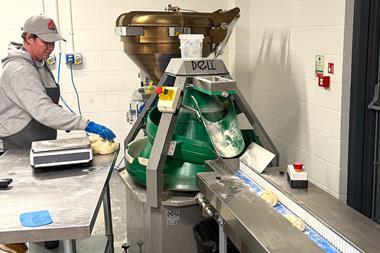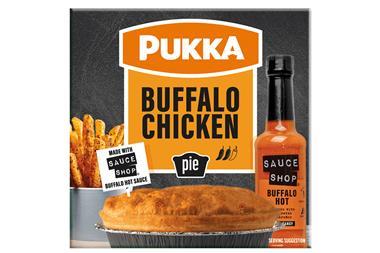Food businesses must put in place steps to manage acrylamide under EU laws that go into force next year.
Coming into effect from next April, Commission Regulation (EU) 2017/2158 will establish best practice, mitigation measures and benchmark levels for the reduction of acrylamide in food.
Acrylamide is a chemical created when foods – particularly starchy ones including bread and potatoes – are cooked for long periods at high temperatures, such as when baked, fried, grilled, toasted or roasted.
Lab tests have shown acrylamide in the diet causes cancer in animals and, while evidence from human studies on the impact of acrylamide in the diet has been inconclusive, scientific consensus is that it has the potential to cause cancer in humans.
The new legislation applies to all food business operators that produce or place on the market foods including bread, biscuits, rusks, cereal bars, scones, wafers, crumpets, gingerbread, crackers, crispbreads and bread substitutes. Non-bakery products covered by the legislation include chips, crisps, coffee and breakfast cereals.
Food business operators will be expected to:
- Be aware of acrylamide as a food safety hazard and have a general understanding of how acrylamide is formed in the food they produce;
- Take necessary steps to mitigate acrylamide formation in the food they produce, adopting the relevant measures as part of their food safety management procedures
- Undertake sampling and analysis where appropriate, to monitor the levels of acrylamide in their products
- Keep appropriate records of the mitigation measures undertaken, together with sampling plans and results of any testing.
The UK’s Food Standards Agency (FSA) said the measures were proportionate to the nature and size of the business, to ensure that small businesses were not overburdened. It added that measures to mitigate acrylamide had been drawn from various codes of practice developed by trade bodies, and were not intended to lead to any significant changes in the quality and properties of foods.
The EU guidance for bread includes:
- Ensuring bread is baked to a lighter colour to reduce acrylamide formation
- Extending the yeast fermentation time
- Optimising baking temperature and time
- Substituting ingredients that have the potential to raise acrylamide levels in the final product, for instance the use of nuts and seeds roasted at lower rather than higher temperatures.
- Replacing fructose with glucose, particularly in recipes containing ammonium bicarbonate.
The FSA and Food Standards Scotland are working with trade groups to develop simple guidance to help catering and foodservice businesses comply with new rules. Guidelines will also be available in the New Year.
The FSA is also developing guidelines to assist local authorities in the implementation and enforcement of the new requirements.
































No comments yet